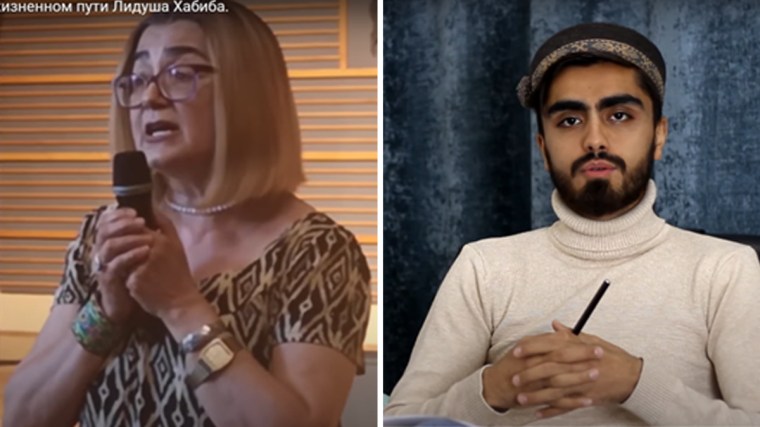New York, December 13, 2022 – Tajik authorities should immediately release journalists Khushruz Jumayev and Ulfatkhonim Mamadshoeva, and stop imprisoning members of the press for their work, the Committee to Protect Journalists said Tuesday.
The Tajikistan Supreme Court recently convicted Jumayev, a journalist and blogger who works under the name Khushom Gulyam, of membership in a criminal group, and sentenced him to eight years in prison, according to a report by the U.S. Congress-funded broadcaster Radio Ozodi and a person familiar with his case, who spoke to CPJ on the condition of anonymity, citing fear of reprisal.
The court also convicted Mamadshoeva, a journalist and human rights activist, according to Radio Ozodi and a second person who spoke to CPJ on the condition of anonymity, and who was familiar with her case. Radio Ozodi reported that Mamadshoeva was sentenced to 21 years in prison, but the person who spoke to CPJ said they believed the sentence was 20 years.
CPJ was unable to determine on what charges Mamadshoeva was convicted; reports previously stated she had been charged with eight crimes, including leading part of a criminal group and calling for the overthrow of the constitutional order.
“Tajikistan authorities’ shocking decision to sentence journalists Khushruz Jumayev and Ulfatkhonim Mamadshoeva to prison, including a decades-long sentence for Mamadshoeva, who at 65 may spend the rest of her life behind bars, is appalling,” said Gulnoza Said, CPJ’s Europe and Central Asia program coordinator. “The Tajik government has utterly failed to offer any compelling justification for these sentences, and the secrecy surrounding the journalists’ cases is completely unwarranted. Mamadshoeva and Jumayev should be released at once and allowed to work freely.”
The people who spoke to CPJ said that the journalists were convicted in the week of December 5. CPJ was unable to establish how the journalists pleaded or whether they plan to appeal the convictions, but both have earlier denied breaking any laws.
Tajik authorities arrested Mamadshoeva and Jumayev in May, days after the outbreak of protests in Tajikistan’s ethnically distinct Gorno-Badakhshan region, and classified the cases against them as secret. Authorities have made the journalists’ lawyers sign nondisclosure agreements and held their trial behind closed doors in a security services detention center, so neither the media nor the journalists’ families have received full information concerning their prosecution, several local journalists told CPJ on condition of anonymity.
Jumayev and Mamadshoeva worked together on several cultural and media projects covering the region’s Pamiri ethnic group, of which both are members; dozens of Pamiri are reported to have been killed during government operations to quell the protests, and scores of local activists and civil society representatives have since been subjected to unfair trials and long prison terms.
Tajikistan’s Ministry of Internal Affairs accused Mamadshoeva of organizing the protests, and state television broadcast a film featuring an alleged confession by the journalist, which she later retracted as having been given under duress, according to reports. The film includes accusations that Mamadshoeva received foreign funding to undermine the state, alleging that she received instructions from the staff of an unnamed Western embassy.
Exiled Tajik journalist Temur Varky told CPJ by messaging app that the allegations against Mamadshoeva were “absurd” and described her conviction as an “act of intimidation of the Pamiri community and the whole of Tajik civil society.”
In a statement issued December 9, the U.N. special rapporteur on the situation of human rights defenders, Mary Lawlor, expressed concern over a “crackdown” on journalists covering human rights in Tajikistan, saying they have been charged “with little reliable evidence, following inadequate investigations, and trials taking place in closed settings.”
CPJ emailed the Tajik Supreme Court, the Ministry of Internal Affairs, and the prosecutor general’s office for comment and to confirm the details of each case, but did not receive any replies.
Tajik authorities recently sentenced journalists Zavqibek Saidamini to seven years in prison, Daler Imomali to 10 years, and Abdullo Ghurbati to seven years and six months, as CPJ has documented.
